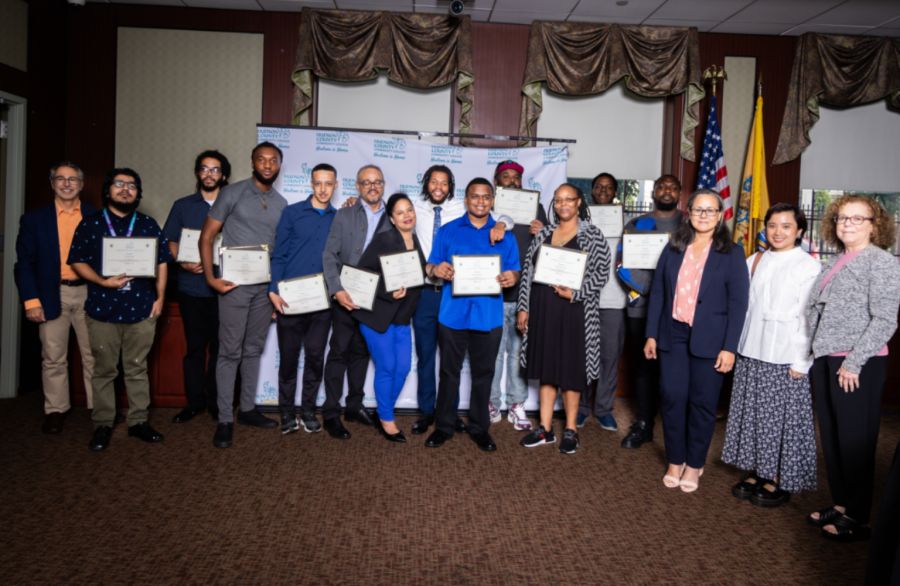The Latest Updates from New Jersey's Utilities Industry
College Students Focus on Careers in Water and Wastewater Systems
JERSEY CITY - A program that introduces Hudson County Community College students to the water sector — as well as preparing them to enter employment opportunities, internships and the New Jersey Water and Wastewater Systems Operations Apprenticeship Program — recently had its second graduation ceremony.
Earlier this month, on the Jersey City campus of HCCC, 17 participants who completed the summer-intensive Water Workforce Utility Program were recognized.
HCCC and New Jersey Future, with the guidance of the Jersey Water Works collaborative, partnered with the New Jersey Water Association, the New Jersey Utilities Association and Veolia North America to create a training program to build a pathway for more employees to enter the water industry.
The Water Workforce Utility Program included 75 hours of instruction in water and wastewater, math basics, Excel, OSHA 10, CPR/First Aid, lab work, career exploration and readiness, customer service skills and utility-centered activity, which included a visit to a water utility.
Credentials such as OSHA 10 and CPR/First Aid certifications will count toward meeting New Jersey Water Association’s apprenticeship curriculum requirements. Staff from Veolia North America facilitated the water and wastewater classes. Grants from Bank of America and the New Jersey Department of Labor & Workforce Development’s Pre-Apprenticeship in Career Education program funded the Water Workforce Utility Program.
The need for such a program has never been so great.
Water utilities, like so many other sectors, are facing challenges in recruiting, training and retaining employees. On top of that, roughly one-third of the water sector workforce is eligible to retire in the next 10 years.
In addition, the new technologies that are used in the water sector are becoming more advanced and require more training.
That being said, the water sector offers a multitude of career opportunities.
While some may require degrees, certifications and licenses, many require less formal education than other jobs in other sectors. Workers can enter this field and continue growing in their careers while receiving on-the-job training, and go on to obtain licenses and certifications while working in the sector.
Paula Figueroa-Vega, director of Jersey Water Works Collaborative, praised the students.
“While some of us spent our summer Saturdays by the Shore, pool or lake, 17 students dedicated their Saturday summers and weekday evenings to learning about water, including drinking water and wastewater,” she said.
“I learned from our partners at HCCC that this week, seven participants from this program are interviewing for internship opportunities in Veolia, and five are working with New Jersey Water Association to apply for apprenticeships. One participant has already secured employment, while others are continuing to advance their education.”
HCCC President Christopher Reber said the program is an example of how the school can address real-time issues.
“Hudson County Community College is dedicated to nurturing alliances that facilitate economic growth and provide our community with sustainable careers,” he said. “We are proud to continue our strong participation in the Water Workforce Utility Program, which is preparing students for careers as water protection specialists.”
Jason Kiernan, vice president – Mid-Atlantic East, for Veolia North America, said the utility is eager to grow the program.
“We are exceptionally proud of our continued partnerships with HCCC and New Jersey Future,” he said. “Veolia personnel in New Jersey play a hands-on role by teaching courses for the Water Workforce Utility Program.
“With several program graduates currently on career paths with Veolia North America, there’s no greater reward than seeing this program fulfilling needs — not only for our industry on the whole, but for these talented individuals from communities we serve.”
